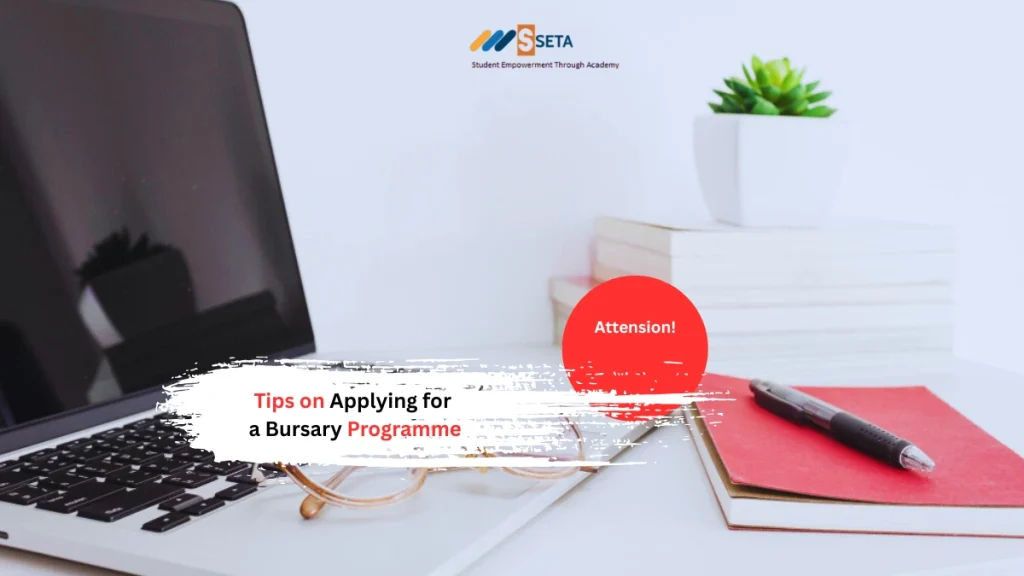Meta Description: Applying for a bursary in South Africa? Learn the 10 biggest mistakes students make in bursary applications and practical tips to increase your chances of success.
10 Common Mistakes Students Make When Applying for a Bursary Programme
Bursaries are a lifeline for many South African students, helping them access higher education without the financial burden of tuition fees. However, every year, thousands of applications are rejected due to avoidable mistakes. From missed deadlines to incomplete documents, even small errors can cost students life-changing opportunities.
Understanding these common mistakes — and how to avoid them — is essential for improving your chances of receiving funding. Below is a detailed guide to help you submit a polished, professional, and competitive bursary application for 2025/2026.
1. Missing Deadlines
One of the most common and costly mistakes is submitting your application after the closing date. Bursary administrators receive hundreds of applications, and late submissions are automatically disqualified.
How to Avoid It:
- Create a calendar with all bursary deadlines.
- Set personal reminders at least two weeks before the actual closing date.
- Submit early to avoid last-minute technical issues.
| Mistake | Impact | Solution |
|---|---|---|
| Missing the closing date | Automatic disqualification | Track deadlines and submit early |
2. Not Following Instructions
Many applicants overlook specific application requirements such as document format, essay length, or reference letter type. Ignoring instructions shows a lack of attention to detail — a red flag for selection committees.
How to Avoid It:
- Read the bursary advertisement carefully.
- Highlight or note key instructions.
- Double-check your application against the checklist before submission.
| Mistake | Impact | Solution |
|---|---|---|
| Ignoring instructions | Application rejection | Carefully follow all stated requirements |
3. Submitting a Generic Essay
A bursary motivation letter or essay is your chance to stand out. Using the same essay for multiple applications often comes across as impersonal and uninspired.
How to Avoid It:
Useful Links:
- Tailor your essay for each bursary.
- Align your goals with the sponsor’s mission (e.g., engineering, health, education).
- Show genuine passion and understanding of the field.
| Mistake | Impact | Solution |
|---|---|---|
| Using a one-size-fits-all essay | Fails to impress reviewers | Customize each essay for the bursary |
4. Not Proofreading Your Application
Spelling errors, grammatical mistakes, and poor sentence structure create an unprofessional impression. Bursary committees value clarity and effort — sloppy writing suggests carelessness.
How to Avoid It:
- Proofread multiple times.
- Use spell-check tools.
- Ask a teacher or mentor to review your application.
| Mistake | Impact | Solution |
|---|---|---|
| Spelling and grammar errors | Poor impression, lower credibility | Proofread carefully before submission |
5. Submitting Incomplete Applications
Many bursary applications are rejected because students forget to attach essential documents such as ID copies, proof of registration, or transcripts.
How to Avoid It:
- Review the application checklist before submission.
- Ensure all documents are clear, certified, and current.
- Save all attachments in the required file formats (e.g., PDF).
| Mistake | Impact | Solution |
|---|---|---|
| Missing documents | Application deemed incomplete | Use a checklist to ensure all documents are attached |
6. Providing Incorrect or Misleading Information
Submitting inaccurate details about your academic results or financial background can lead to disqualification, even if unintentional. Honesty and accuracy are crucial in every stage of the process.
How to Avoid It:
- Verify all information before submission.
- Provide truthful financial details, even if your situation is complex.
- Keep copies of your academic records for easy reference.
| Mistake | Impact | Solution |
|---|---|---|
| False or incorrect data | Disqualification or blacklisting | Ensure all information is accurate and up to date |
7. Applying for Bursaries You Don’t Qualify For
Some students apply for every bursary they find, regardless of eligibility. This wastes time and resources while lowering the chances of success.
How to Avoid It:
- Carefully read the eligibility criteria.
- Focus only on bursaries that match your field, level of study, or background.
- Apply strategically for opportunities that align with your qualifications.
| Mistake | Impact | Solution |
|---|---|---|
| Applying for unsuitable bursaries | Wasted time and effort | Apply only for bursaries that fit your profile |

8. Failing to Highlight Unique Achievements
Bursary committees want to see what makes you special. Failing to showcase leadership roles, awards, or community involvement weakens your application.
How to Avoid It:
- Mention achievements beyond academics (sports, volunteering, innovation).
- Highlight leadership positions or initiatives you’ve led.
- Use specific examples that reflect your character and commitment.
| Mistake | Impact | Solution |
|---|---|---|
| Not highlighting achievements | Missed opportunity to stand out | Showcase accomplishments and leadership roles |
9. Plagiarism or Dishonesty
Copying another person’s essay or fabricating details can lead to immediate disqualification. Many bursary organizations use plagiarism detection tools to verify authenticity.
How to Avoid It:
- Write your own essay using your genuine voice.
- Be truthful about achievements and goals.
- Avoid exaggerating experiences or results.
| Mistake | Impact | Solution |
|---|---|---|
| Plagiarizing or lying | Permanent disqualification | Maintain honesty and originality throughout your application |
10. Falling for Scams
With more students seeking funding online, bursary scams have become increasingly common. Fraudsters create fake bursary listings to collect personal data or charge “application fees.”
How to Avoid It:
- Only apply through official bursary websites or verified sources.
- Be cautious of bursaries requiring payment for processing.
- Verify contact details and look for government or institutional email domains (e.g.,
.gov.za,.ac.za).
| Mistake | Impact | Solution |
|---|---|---|
| Applying for fake bursaries | Financial loss or data theft | Verify bursary authenticity before applying |
Final Tips for a Successful Bursary Application
Applying for a bursary is a competitive process, but success largely depends on preparation and attention to detail. Here are a few final pointers to improve your chances:
- Start early: Don’t wait until the last minute to gather documents.
- Stay organized: Keep a digital folder with all your certificates, IDs, and transcripts.
- Be authentic: Write with honesty and passion — authenticity resonates more than perfection.
- Follow up: If possible, confirm that your application was received before the deadline.
Conclusion
Applying for a bursary is not just about meeting academic requirements; it’s about presenting yourself as a capable, dedicated, and honest candidate. Avoiding these ten common mistakes can significantly improve your chances of success.
By submitting a well-organized, truthful, and polished application — and paying close attention to every detail — you position yourself ahead of thousands of other applicants.
If you take your time, stay organized, and stay authentic, the bursary you’ve been hoping for might be just one careful application away.
Quick Summary Table
| Top 10 Mistakes | Why It Matters | How to Avoid It |
|---|---|---|
| Missing deadlines | Late submissions are disqualified | Submit early |
| Ignoring instructions | Shows carelessness | Follow every guideline |
| Generic essay | Lacks personality | Personalize for each bursary |
| No proofreading | Appears unprofessional | Edit and review carefully |
| Missing documents | Incomplete application | Attach all required files |
| Incorrect info | Risk of disqualification | Be honest and accurate |
| Wrong bursary choice | Waste of effort | Apply only if eligible |
| No achievements listed | Missed chance to stand out | Highlight key successes |
| Dishonesty/plagiarism | Leads to rejection | Be truthful and original |
| Falling for scams | Financial or data loss | Verify bursary sources |


